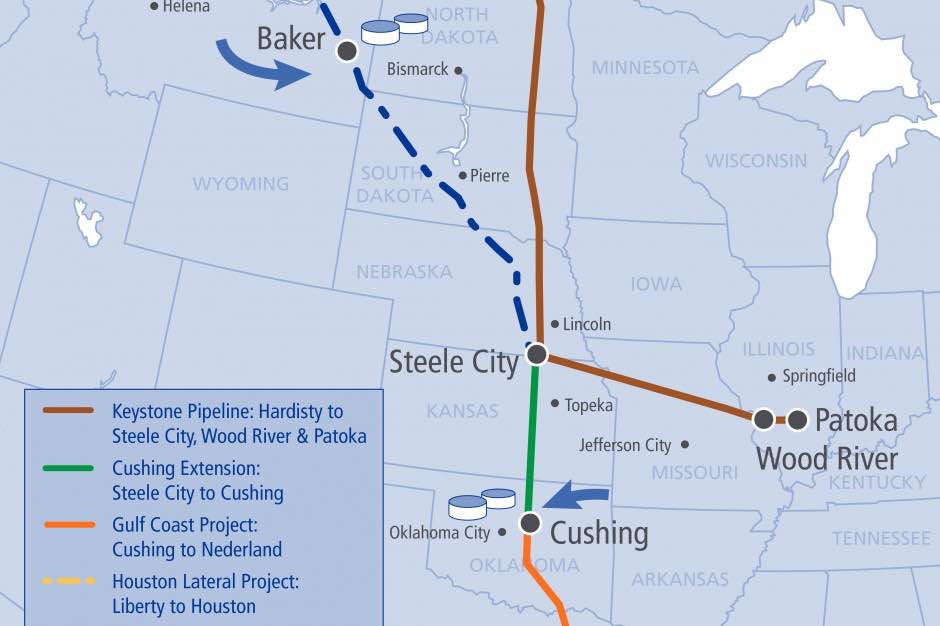Environmental Groups Challenge Keystone XL Pipeline Approval

OMAHA, Neb. (AP) — A coalition of environmental groups challenged the federal permit for the Keystone XL oil pipeline in court on Thursday because they say additional environmental scrutiny is needed.
The Sierra Club, Natural Resources Defense Council and other groups say the initial environmental review completed in 2014 is inadequate and outdated, and that it underestimated how much the pipeline would encourage tar sands oil production in Canada.
The proposed pipeline that TransCanada wants to build would carry crude oil from Canada through Montana, South Dakota and Nebraska, where it would connect with an existing Keystone pipeline network that would take the oil to Texas Gulf Coast refineries.
The U.S. State Department issued a permit for the project earlier this month, though Nebraska regulators still must review and decide whether to approve the proposed route through their state.
President Donald Trump has said he believes the pipeline will create American jobs and bolster the country’s energy independence. He overturned former President Barack Obama’s rejection of the project in 2015.
Officials with the State Department and TransCanada declined to comment on the lawsuit, saying they don’t comment on pending litigation.
The environmental groups contend in their lawsuit filed in Montana that the 2014 report on the project’s impact “downplays or ignores other significant environmental impacts of Keystone XL, including harms to land, air, water, and wildlife.”
The $8 billion pipeline that was first proposed in 2008 has drawn strong opposition from environmental groups and some landowners who worry about potential contamination of ground and surface water.
Some of the other groups involved in the lawsuit are the Northern Plains Resource Council, Bold Alliance, Friends of the Earth and the Center for Biological Diversity.
Supporters of the project maintain that those fears are exaggerated, and the pipeline will have a number of upgraded safety features. The pipeline would carry 830,000 barrels of oil a day.
In Nebraska, the elected state Public Service Commission will review the project. That decision will be based on whether commissioners believe the project serves a public interest, based on evidence presented at a public hearing.
Related News
Related News

- Enbridge Plans 86-Mile Pipeline Expansion, Bringing 850 Workers to Northern B.C.
- Intensity, Rainbow Energy to Build 344-Mile Gas Pipeline Across North Dakota
- Energy Transfer to Build $5.3 Billion Permian Gas Pipeline to Supply Southwest
- Enbridge Sees High Demand to Expand 593-Mile Canada-to-U.S. Gulf Oil Pipeline
- Strike Pioneers First-of-Its-Kind Pipe-in-Pipe Installation on Gulf Coast with Enbridge
- A Systematic Approach To Ensuring Pipeline Integrity
- 275-Mile Texas-to-Oklahoma Gas Pipeline Enters Open Season
- LNG Canada Start-Up Fails to Lift Gas Prices Amid Supply Glut
- Strike Pioneers First-of-Its-Kind Pipe-in-Pipe Installation on Gulf Coast with Enbridge
- Enbridge Sees High Demand to Expand 593-Mile Canada-to-U.S. Gulf Oil Pipeline




Comments